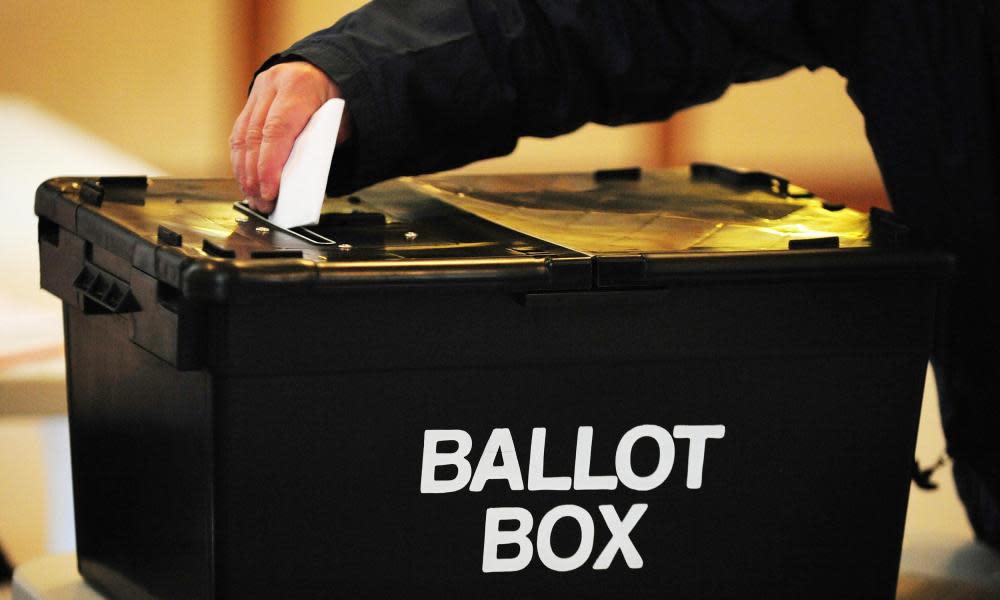More than 2.3m people have registered to vote since election was called

About 2.3 million people have registered to vote since the general election was called just under five weeks ago, with registrations coming at a faster rate than before the Brexit referendum, the Electoral Commission has said.
This does not necessarily equate to the same number of new voters, as some of the applications could be duplicates from people already registered, said Emma Hartley, head of campaigns for the commission.
Would-be voters have until midnight on Monday to register if they want to vote on 8 June. Applications can be made online in a matter of a few minutes, although people in Northern Ireland have to physically hand in the completed form to a local election office.
“Since the general election was announced on 18 April more than 2.3m applications to register have been submitted,” Hartley told BBC Radio 4’s Today programme.
default
She said: “We saw similar levels of registration ahead of the referendum, and ahead of the 2015 general election, but because we’re working with such a shorter timeframe ahead of the 8 June general election, it’s a lot of applications within a shorter number of days.”
Some of these would be duplicate applications, Hartley said, but added: “It is a large number of people who are applying. We’ll know the final numbers about the size of the electorate after the polls.”
An estimated 7 million eligible voters are not registered, and Hartley said those most likely to be disenfranchised were younger people or those who had moved recently.
“We know that age and population mobility are the biggest variables that contribute to levels of under-registrations,” she said. “It’s more likely that people who are 34 years old or younger that are not registered – it’s around 30% of that population, compared to only 4% of those aged 55 and older who aren’t registered.
“With population mobility, we know that people who have moved home within the last year tend not to be registered to vote because it’s something that people don’t get around to doing when they have to do a lot of other things when they’re moving house.”
Simon Wooley, the director of Operation Black Vote, which seeks to encourage people from black and minority ethnic communities to engage more closely in politics, said the system of individual voter registration – changed in 2014 from household registration – was “much more complicated than it needs to be”.
He called for a system in which people are automatically registered to vote, saying: “Why would we want to undermine our democracy, with so many people not engaging?”
Wooley said his organisation often found a lack of connection to the wider political system. “A lot of people that we speak to up and down the country say that our institutions don’t look like us, sound like us, and don’t have plans to tackle those persistent inequalities that turn people off,” he said.
You can register to vote here.

 Yahoo News
Yahoo News 
